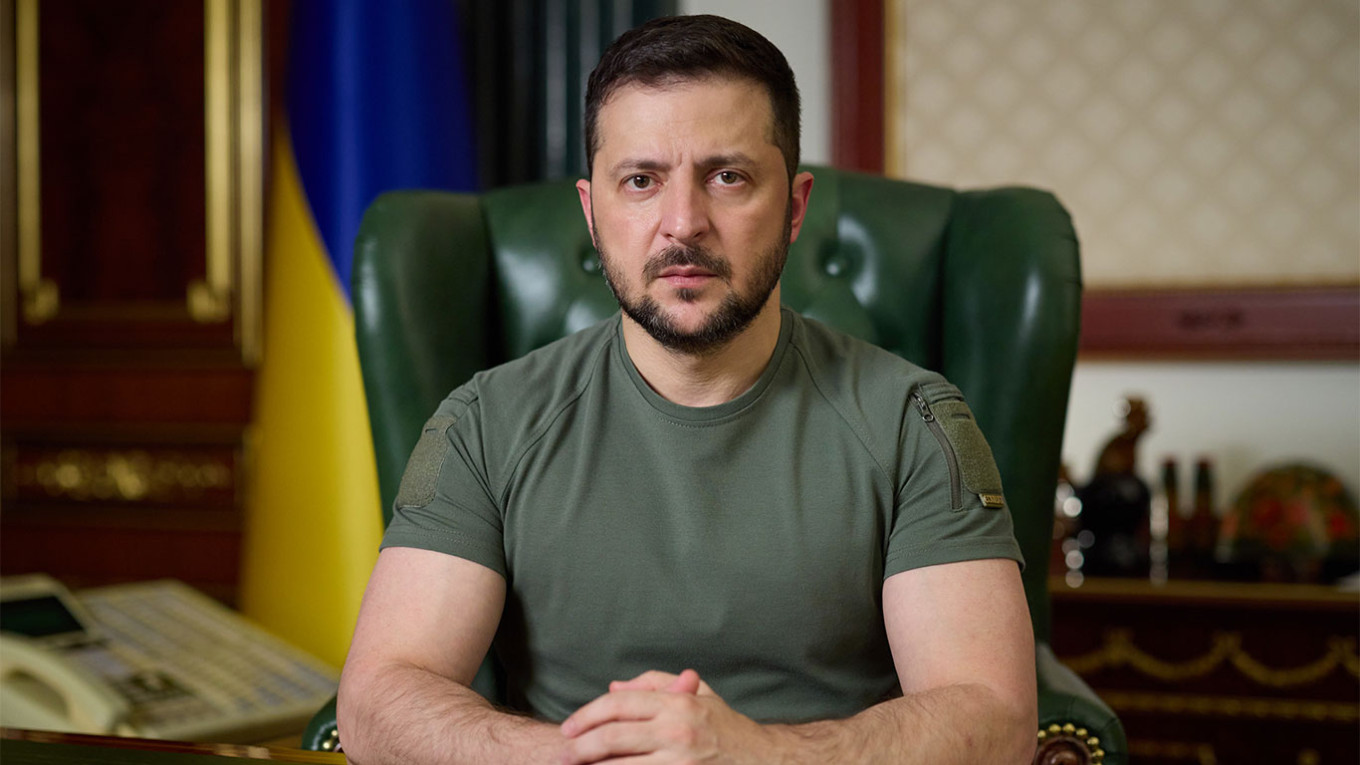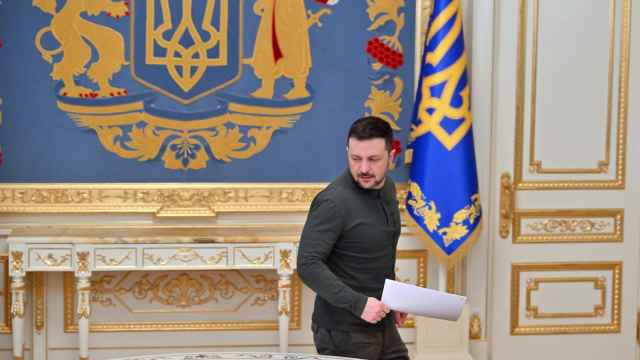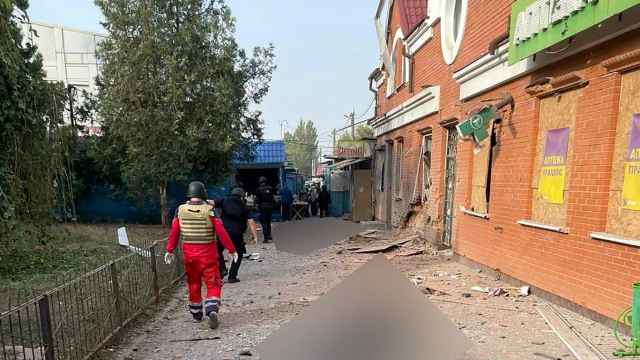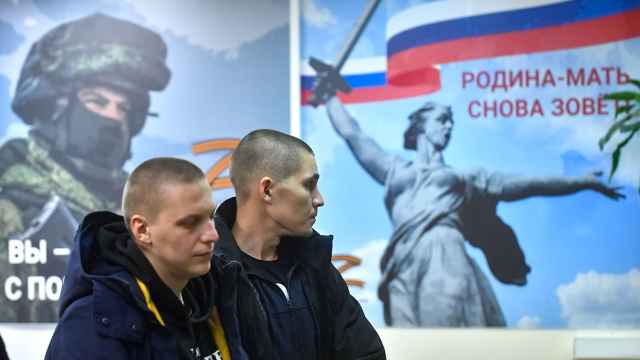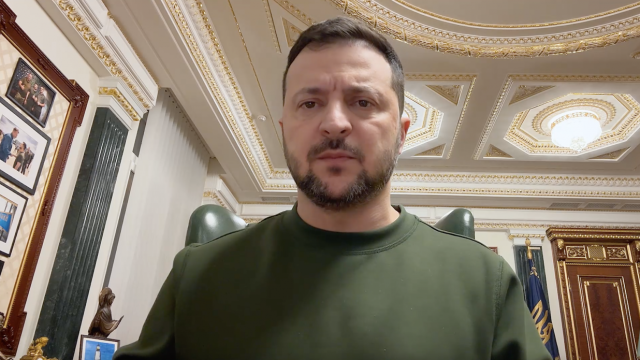President Volodymyr Zelensky said Sunday that Ukrainian forces that retook the city of Kherson found evidence of new war crimes by Russian occupiers.
"The Russian army left behind the same atrocities as in other regions of our country," he said in a nightly address.
"Investigators have already documented more than 400 war crimes," the Ukrainian leader said, without clearly specifying the area in which they were found.
"The bodies of the killed are being found, both civilians and military," he said. "We will find and bring to justice every murderer."
Ukrainians in the liberated city have expressed a deep sense of relief over the end of months of occupation after Russian forces pulled out on Friday.
But, like Zelensky, they said the Russians had left a trail of destruction, laying mines and going on a looting spree — even stealing animals from a zoo — before their withdrawal.
"God will punish them. All of them. For everything they did," said Svitlana Vilna, 47.
'Still very dangerous'
Ruined buildings and destroyed military vehicles could be seen at the entrance to the strategic Black Sea port city, where battles raged just days ago.
A smell of burning wood wafted through the air.
"I ask you not to forget that the situation in the Kherson region is still very dangerous," Zelensky said.
He said a Ukrainian sapper was killed while removing a mine, while four others were injured.
Zelensky said workers were moving to quickly restore critical infrastructure destroyed by the Russians, including water, electricity, internet and television links, as well as transport and postal services.
Kherson was one of four regions in Ukraine that Russian President Vladimir Putin claimed to have annexed in September.
On Sunday, residents queued to get food, and many adults and children walked around wrapped in Ukrainian flags.
Some gathered in the city's main square, mostly to use Starlink satellite internet and connect with relatives.
"I need to get in touch with my family," said Klavdia Mych, a retired teacher.
"We have been without water for a week," the 69-year-old added. "And they say everything is mined. It is very scary."
Viktoria Dybovska, a 30-year-old sales clerk, said the Russians "took everything with them."
"They cleared out the stores," she added.
Oleksandr Todorchuk, founder of the organization UAnimals, said Russian troops had taken most of the local zoo's animals to Crimea.
"From llamas and wolves to donkeys and squirrels," he said on Facebook.
Russia fortifying defenses
The city of Kherson was the first major urban hub to fall after Russia invaded in February.
On Saturday, in the village of Pravdyne, outside Kherson, returning locals embraced their neighbors, with some unable to hold back tears.
"Victory, finally!" said Svitlana Galak, who had lost her eldest daughter in the war.
"Thank god we've been liberated and everything will now fall into place," the 43-year-old told AFP.
Several disabled anti-tank mines and grenades, and a number of damaged buildings, could be seen in the settlement.
While de-mining continues, a curfew has been put in place and movement in and out of the city has been limited, local authorities said.
Zelensky said Sunday that Kyiv was establishing control over more than 200 settlements in the region.
Around 200 officers were erecting roadblocks and recording "crimes of the Russian occupiers," said Ukraine's police chief Igor Klymenko.
But Russian troops continued to fortify defenses on the left bank of the Dnipro River where they had withdrawn from, the Ukrainian army's Operational Command South said Monday.
"It continues to inflict fire damage on our troops and the de-occupied settlements along the right bank of the Dnipro" with heavy artillery and mortars, it said.
Kherson's full recapture opens a gateway for Ukraine to the entire Kherson region, with access to both the Black Sea in the west and the Sea of Azov in the east.
'What was it all for?'
Shunned by the West over his offensive in Ukraine, Putin, 70, will not travel to Indonesia for the G20 leaders' summit.
On Monday, U.S. Treasury Secretary Janet Yellen heaped pressure on Russia, saying the best way to end global economic tumult was to end the Ukraine war.
"Ending Russia's war is a moral imperative and the single best thing we can do for the global economy," Yellen told reporters in Bali, which is hosting the G20 summit.
U.S. Secretary of State Antony Blinken hailed the "remarkable courage" of Ukraine's military and people, and vowed U.S. support "will continue for as long as it takes" to defeat Russia.
In London, British Defense Secretary Ben Wallace said Moscow's "strategic failure" in Kherson could prompt Russians to question the war.
"Ordinary people of Russia must surely ask themselves: 'What was it all for?'"
A Message from The Moscow Times:
Dear readers,
We are facing unprecedented challenges. Russia's Prosecutor General's Office has designated The Moscow Times as an "undesirable" organization, criminalizing our work and putting our staff at risk of prosecution. This follows our earlier unjust labeling as a "foreign agent."
These actions are direct attempts to silence independent journalism in Russia. The authorities claim our work "discredits the decisions of the Russian leadership." We see things differently: we strive to provide accurate, unbiased reporting on Russia.
We, the journalists of The Moscow Times, refuse to be silenced. But to continue our work, we need your help.
Your support, no matter how small, makes a world of difference. If you can, please support us monthly starting from just $2. It's quick to set up, and every contribution makes a significant impact.
By supporting The Moscow Times, you're defending open, independent journalism in the face of repression. Thank you for standing with us.
Remind me later.


